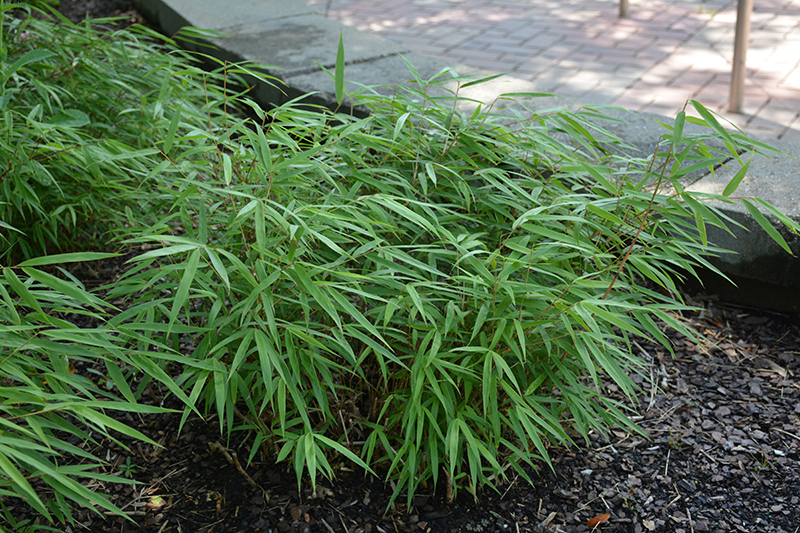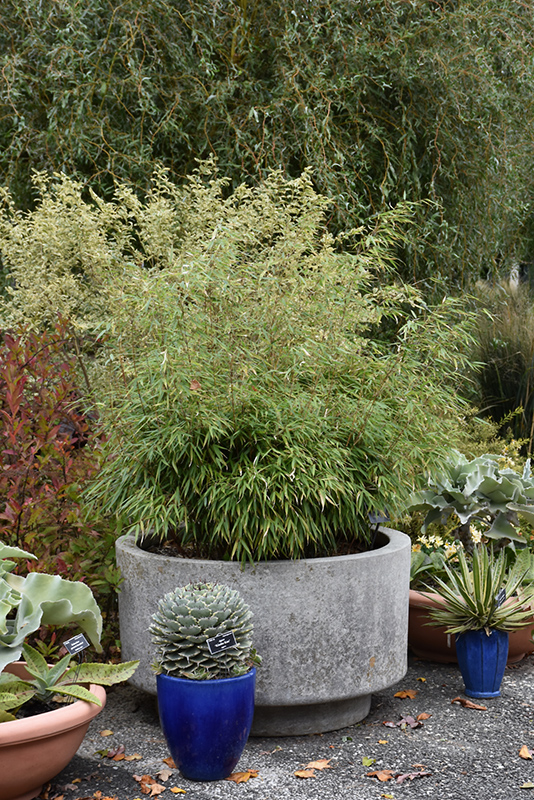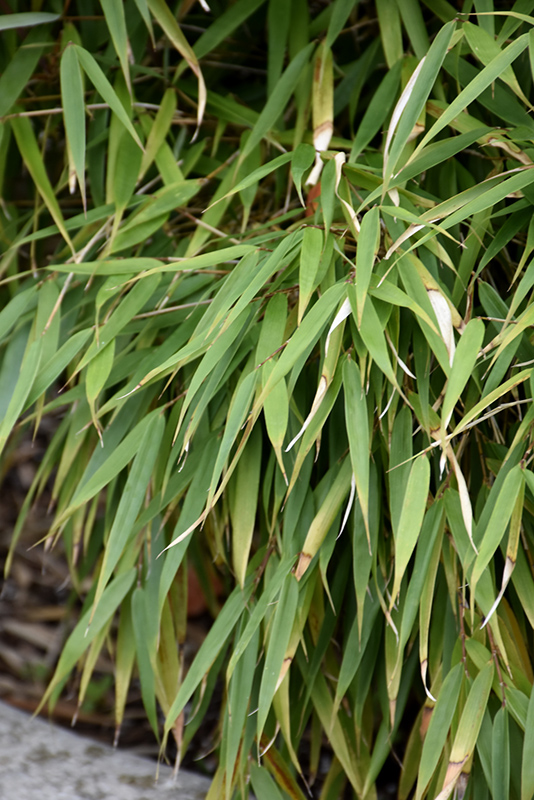>> Home
Height: 15 feet
Spread: 12 feet
Sunlight:
![]()
![]()
Hardiness Zone: 6
Description:
This colorful selection makes a beautiful screen or accent in the garden; culm color is purple to gray-blue, with coppery orange branch sheaths in the fall; tolerant to full sun, but prefers some shade; a non-invasive but vigorous and hardy variety
Ornamental Features
Scabrida Bamboo is primarily valued in the landscape for its cascading habit of growth. Its attractive narrow leaves remain green in color throughout the year. The plum purple stems are very colorful and add to the overall interest of the plant.
Landscape Attributes
Scabrida Bamboo is an herbaceous evergreen perennial with a shapely form and gracefully arching stalks. Its relatively fine texture sets it apart from other garden plants with less refined foliage.
This is a relatively low maintenance plant, and can be pruned at anytime. It has no significant negative characteristics.
Scabrida Bamboo is recommended for the following landscape applications;
- Accent
- Vertical Accent
- Mass Planting
- Hedges/Screening
- General Garden Use
- Naturalizing And Woodland Gardens
Planting & Growing
Scabrida Bamboo will grow to be about 15 feet tall at maturity, with a spread of 12 feet. Its foliage tends to remain dense right to the ground, not requiring facer plants in front. It grows at a fast rate, and under ideal conditions can be expected to live for approximately 30 years. As an evegreen perennial, this plant will typically keep its form and foliage year-round.
This plant does best in full sun to partial shade. It does best in average to evenly moist conditions, but will not tolerate standing water. It may require supplemental watering during periods of drought or extended heat. It is not particular as to soil pH, but grows best in rich soils. It is highly tolerant of urban pollution and will even thrive in inner city environments. This species is not originally from North America. It can be propagated by division.


